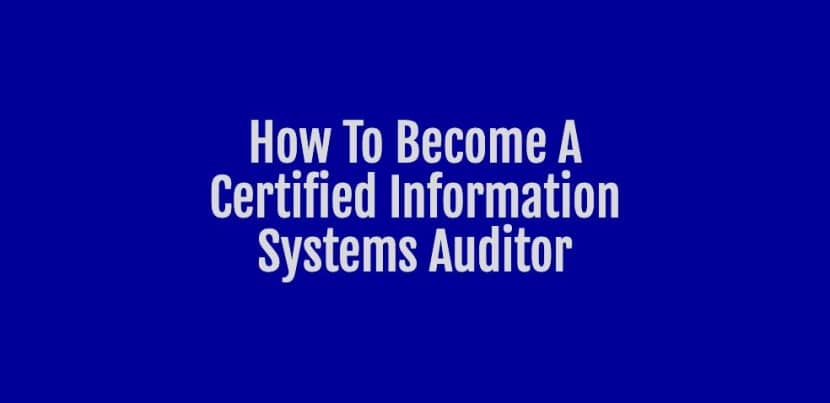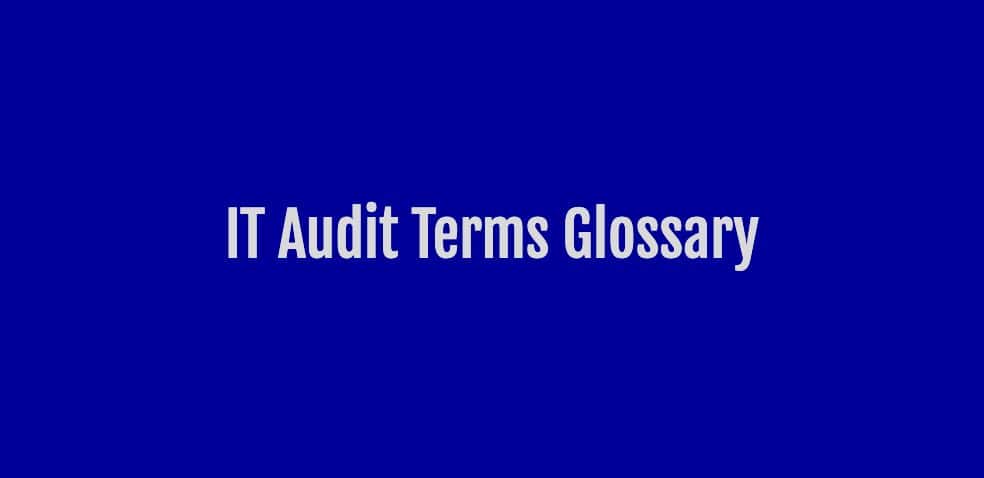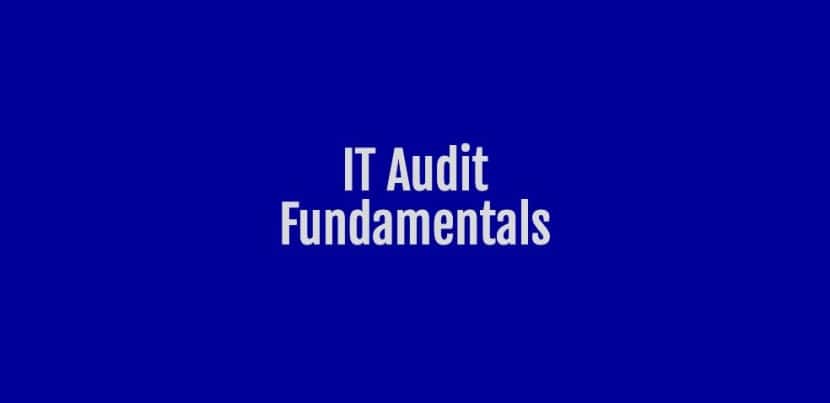- The Path to Becoming a Certified Information Systems Auditor
- Steps to Achieving CISA Certification
- Exploring Degree Options for CISA Certification
- Essential Skills for a Successful Certified Information Systems Auditor
- The Salary Potential of a Certified Information Systems Auditor
- Job Outlook for Certified Information Systems Auditors
- Certifications: A Requirement for CISA Professionals?
- Common Questions About CISA Certification
In today’s fast-paced digital world, the demand for skilled professionals in the field of information systems audit is increasing. Organizations are constantly striving to protect their sensitive data and ensure the integrity of their systems. One way they achieve this is by hiring Certified Information Systems Auditors (CISAs). Suppose you are interested in pursuing a career in this exciting and rewarding field. In that case, this step-by-step guide will provide you with valuable insights into becoming a Certified Information Systems Auditor.
The Path to Becoming a Certified Information Systems Auditor
Before we delve into the details of the certification process, let’s first understand the crucial role that Certified Information Systems Auditors play within organizations.
A Certified Information Systems Auditor (CISA) is a professional with the expertise to assess, control, and monitor an organization’s information technology and business systems. They are responsible for identifying and mitigating risks, ensuring compliance with regulatory requirements, and providing assurance over the effectiveness and efficiency of the organization’s IT processes.
As a CISA, you will be expected to evaluate information systems for vulnerabilities, design and implement controls to mitigate risks and provide recommendations for process improvement. You will work closely with management to identify, evaluate, and address IT risks promptly.
Furthermore, you will have the opportunity to collaborate with various stakeholders, including IT teams, executives, and external auditors, to ensure that the organization’s IT systems are secure and aligned with business objectives.
Now that we clearly understand the role let’s explore the steps involved in obtaining CISA certification.
Steps to Achieving CISA Certification
Now that we clearly understand the role let’s explore the steps involved in obtaining CISA certification.
- Get Familiar with the CISA Exam: The first step towards becoming a Certified Information Systems Auditor is to familiarize yourself with the CISA exam format and content. The CISA exam comprises multiple-choice questions assessing your knowledge and skills in auditing processes, IT governance, and information systems acquisition.
- Meet the Certification Requirements: To be eligible for CISA certification, you must meet specific requirements set by ISACA (Information Systems Audit and Control Association). These requirements typically include a minimum level of professional work experience in information systems auditing, control, or security.
- Prepare for the CISA Exam: Preparing for the CISA exam is crucial to increase your chances of success. Consider investing in study materials, attending professional training courses, and taking practice exams to enhance your knowledge and exam-taking skills.
- Apply for the CISA Exam: Once you feel adequately prepared, you can submit your application to take the CISA exam. This application will include information about your work experience, education, and references.
- Pass the CISA Exam: Upon approval of your application, you will receive instructions on scheduling your exam. Passing the CISA exam requires a deep understanding of the exam domains and thorough preparation. Remember to manage your time effectively during the exam and review your answers before submitting.
- Gather Relevant Work Experience: In addition to passing the CISA exam, you must also meet the experience requirements set by ISACA. This typically involves a minimum of five years of professional work experience in information systems auditing, control, or security. However, certain substitutions, such as education or other certifications, may be applied to fulfill this requirement.
- Apply for CISA Certification: Once you have met all the eligibility requirements, including passing the exam and gaining the necessary work experience, you can apply for CISA certification. ISACA will review this application, and upon approval, you will be awarded the prestigious CISA certification.
While the certification process may seem challenging, it is important to remember that it is a valuable investment in your professional development. Obtaining CISA certification can open doors to exciting career opportunities and demonstrate your commitment to excellence in the field of information systems auditing.
Exploring Degree Options for CISA Certification
While a specific degree is not required to become a Certified Information Systems Auditor, having a relevant educational background can enhance your knowledge and skills in this field. Consider pursuing a bachelor’s or master’s degree in fields such as information systems, computer science, or cybersecurity. These degree programs can provide you with a solid IT principles foundation and the necessary technical expertise.
Furthermore, obtaining a degree can also fulfill some of the educational requirements set by ISACA, potentially reducing the number of years of work experience needed to qualify for CISA certification. Pursuing a degree can demonstrate your commitment to continuous learning and professional growth.
Essential Skills for a Successful Certified Information Systems Auditor
In addition to obtaining the necessary education and certifications, there are certain skills that can significantly contribute to your success as a Certified Information Systems Auditor.
- Analytical Thinking: As a CISA, you will be required to analyze complex systems and identify potential risks. Strong analytical thinking skills will enable you to evaluate IT processes and systems effectively.
- Attention to Detail: Auditing requires meticulous attention to detail to ensure that no potential issues or vulnerabilities are overlooked. Being detail-oriented is essential to performing comprehensive audits and providing accurate recommendations.
- Communication Skills: Effective communication is crucial for a CISA. You must communicate audit findings, recommendations, and potential risks totechnical and non-technical stakeholders. Strong verbal and written communication skills will help you convey complex information in a clear and concise manner.
- Continual Learning: The field of information systems audit is constantly evolving. To stay up to date with the latest technologies, regulations, and industry best practices, it is essential to have a thirst for knowledge and a commitment to lifelong learning.
- Ethical Behavior: As a Certified Information Systems Auditor, you will have access to sensitive information. Maintaining a high level of ethics and integrity is paramount to ensure the organization’s data’s confidentiality, integrity, and availability.
- Problem-Solving: Information systems auditors often encounter complex challenges that require creative problem-solving skills. Developing strong problem-solving abilities will enable you to overcome obstacles and provide innovative solutions.
By honing these essential skills, you will be well-equipped to navigate the dynamic landscape of information systems auditing and excel in your career as a Certified Information Systems Auditor.
The Salary Potential of a Certified Information Systems Auditor
One of the appealing aspects of pursuing a career as a Certified Information Systems Auditor is the potential for a lucrative salary.
The average salary for a CISA professional can vary depending on factors such as experience, location, and industry. According to recent industry surveys, the median annual salary for CISAs ranges from $70,000 to $130,000. Additionally, with years of experience and continuous professional development, the earning potential can increase significantly.
It is important to note that salary ranges can vary based on factors such as the organization’s size, the industry sector, and the level of responsibility associated with the role. Furthermore, additional certifications, such as Certified Information Security Manager (CISM) or Certified in Risk and Information Systems Control (CRISC),can further enhance your marketability and earning potential.
Job Outlook for Certified Information Systems Auditors
The demand for Certified Information Systems Auditors is expected to remain strong in the coming years. Organizations across various industries recognize the importance of safeguarding their information assets and rely on skilled professionals to perform thorough audits. As technology continues to advance, the need for well-trained CISAs will continue to grow, offering excellent job prospects for aspiring professionals.
Furthermore, the increasing emphasis on data privacy and cybersecurity regulations, such as the General Data Protection Regulation (GDPR) and the California Consumer Privacy Act (CCPA),has further elevated the importance of information systems auditing. Organizations are seeking professionals who can help them navigate the complex landscape of regulatory compliance and ensure the security of their data.
As a Certified Information Systems Auditor, you will have the opportunity to work in a variety of industries, including finance, healthcare, government, and consulting. This versatility allows you to explore different sectors and gain exposure to diverse business environments.
Certifications: A Requirement for CISA Professionals?
While certifications are not always mandatory for every job in the information systems audit field, they can greatly enhance your professional credibility and marketability. CISA certification, in particular, is highly regarded by employers and is often preferred or even required for many senior-level positions. Holding a CISA certification demonstrates your commitment to the field and validates your expertise in information systems auditing.
Other certifications, such as Certified Information Security Manager (CISM) and Certified in Risk and Information Systems Control (CRISC),can complement your CISA certification and further broaden your skillset. These certifications focus on areas such as information security management and risk assessment, providing you with a well-rounded foundation in IT governance and risk management.
By obtaining multiple certifications, you can position yourself as a versatile professional capable of addressing various aspects of information systems auditing and governance.
Common Questions About CISA Certification
Aspiring CISAs often have common questions regarding the certification process. Let’s address some of the most frequently asked questions:
- How long does it take to become a Certified Information Systems Auditor?
- What are the continuing professional education (CPE) requirements for CISA professionals?
- Can I take the CISA exam without meeting the experience requirements?
- How can I maintain my CISA certification?
- Are there any other certifications that complement CISA?
Pursuing a Career as a Certified Information Systems Auditor
Embarking on a career as a Certified Information Systems Auditor can be a fulfilling and rewarding journey. The field offers a unique blend of technical expertise, critical thinking, and professional growth opportunities. By following the steps outlined in this guide, you can take the first step towards becoming a valued professional in the rapidly evolving field of information systems audit.
Becoming a Certified Information Systems Auditor is not just about obtaining a certification; it is about continuously expanding your knowledge, honing your skills, and staying ahead of emerging trends and challenges in the field. Embrace the opportunities for growth and development, and you will be well-positioned for a successful and fulfilling career as a Certified Information Systems Auditor.









